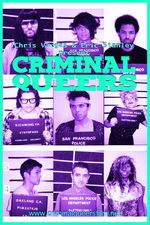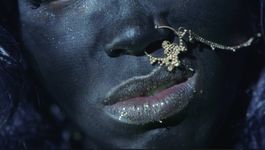
Email us to revise your entry or request it to be deleted.
These are the yes/no and closed vocabulary terms that the Portal uses to filter search
results. They are not
necessarily the words this individual uses for themselves.
Learn more
Trans
No
BIPOC
Yes
Deaf and disabled
No Data
Gender identities
cis, woman
Race/ethnicities
Black
Educator, activist and author Angela Davis (1944-) became known for her involvement in a politically charged murder case in the early 1970s. Influenced by her segregated upbringing in Birmingham, Alabama, Davis joined the Black Panthers and an all-Black branch of the Communist Party as a young woman. She became a professor at UCLA, but fell out of favor with the administration due to her ties. Davis was charged with aiding the botched escape attempt of imprisoned Black radical George Jackson, and served roughly 18 months in jail before her acquittal in 1972. After spending time traveling and lecturing, Davis returned to the classroom as a professor and authored several books.
“Angela Davis,” n.d. https://www.history.com/topics/black-history/angela-davis.Angela Davis (b. 1944) is an American political activist, professor, and author who was an active member in the Communist Party and the Black Panther Party. She is most famous for her involvement with the Soledad brothers, who were accused of killing a prison guard. During George Jackson’s trial in August 1970, an escape attempt was made at gunpoint and several people were killed. Davis was accused of taking part in the event and was charged with murder. Evidence showed that the guns were registered to her and rumors said she was in love with Jackson, which later proved untrue. Davis went into hiding and was placed on the FBI’s most wanted list. She spent eighteen months in jail, which led to the “Free Angela Davis” campaign and the Angela Davis Legal Defense Committee. In response, John Lennon and Yoko Ono wrote “Angela” and the Rolling Stones wrote “Sweet Black Angel.” In 1997, Davis came out as a lesbian during an interview with Out magazine. Since then, she has continued to tackle oppression faced by the black community, women, and the LGBTQ+ community. After spending time traveling and lecturing, Davis returned to teaching. She served as a professor at the University of California, Santa Cruz, where she taught courses on the history of consciousness. Her interests inprisoner rights led her to found Critical Resistance, an organization working to abolish the prison-industrial complex. Davis is the author of several books including Women, Race, and Class (1983) and Are Prisons Obsolete? (2003).
National Museum of African American History & Culture. “Angela Davis,” n.d. https://nmaahc.si.edu/angela-davis.-
Criminal Queers
film/video, 2015
Actor
-
War Call
film/video, 2018
Actor (archive footage)
Email us to revise your entry or request it to be deleted.

